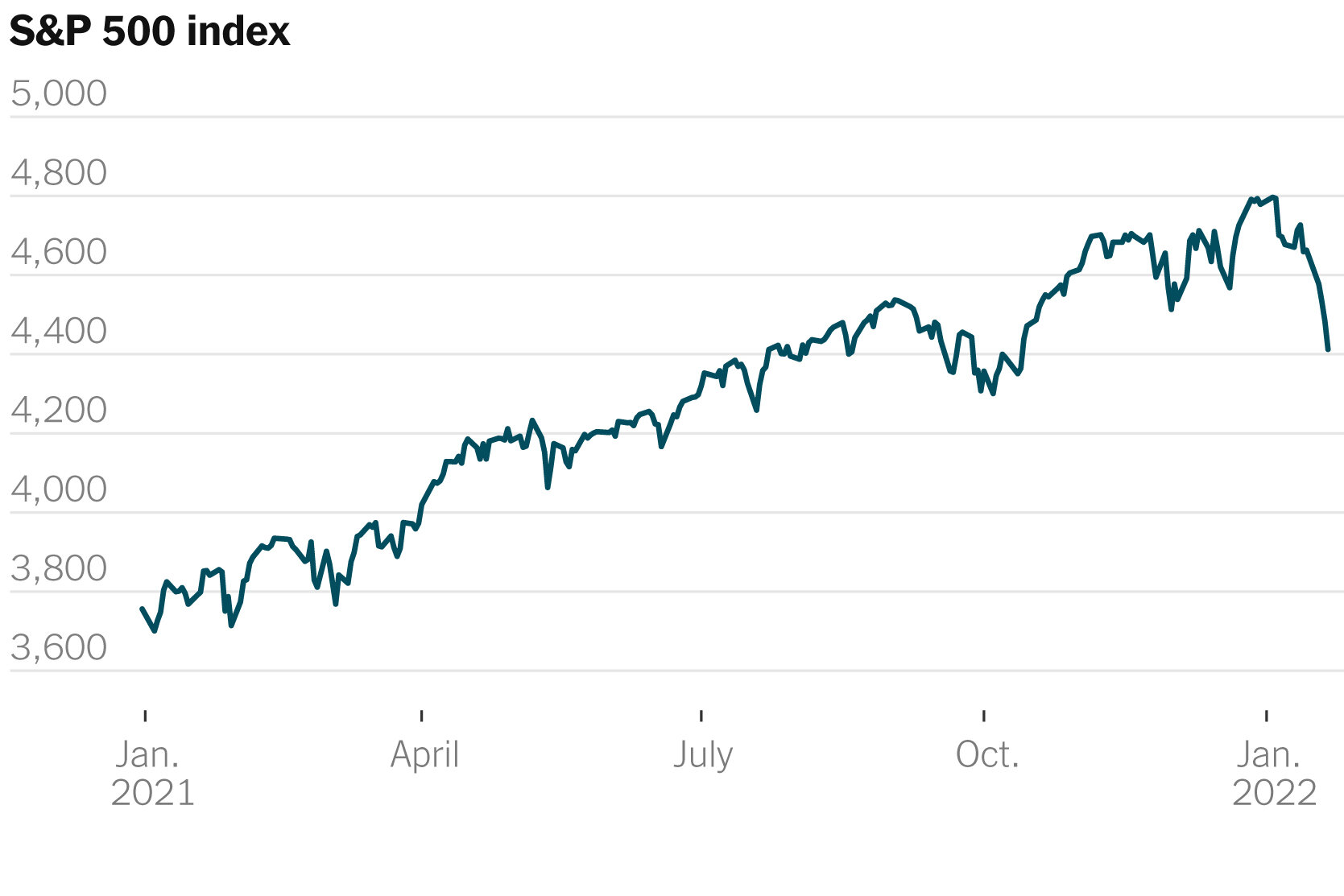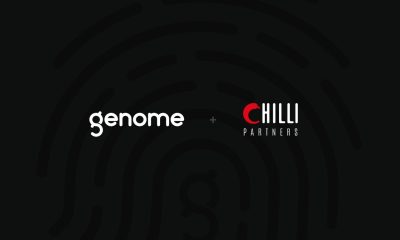Fintech
Canadian Securities Exchange Reports May 2022 Performance Figures

– PDAC conference beginning today highlights active season of events for the CSE –
Toronto, Ontario–(Newsfile Corp. – June 13, 2022) – The Canadian Securities Exchange (“CSE” or “the Exchange”) today announced its market statistics for the month of May 2022.
May 2022 Operating Statistics
- Trading volume of CSE-listed securities totaled 1.4 billion shares;
Trading value of CSE-listed securities was $757 million; - CSE issuers completed 52 financings that raised an aggregate $127 million; and
- The CSE welcomed listings from seven new companies, including two fundamental changes of existing issuers, bringing total listed securities to 784 as at May 31, 2022.
“We are excited to see market participants at the PDAC conference in person today for the first time in more than two years. It is one of numerous in-person events we are participating in over the coming weeks,” said Richard Carleton, CSE Chief Executive Officer. “The mining sector, and natural resources more broadly, have undergone a remarkable recovery during the pandemic, with more than 100 new mining companies listing on the Canadian Securities Exchange since the start of 2021, including 35 this year. The CSE is the ideal destination for entrepreneurs in the natural resources sector to achieve their capital market objectives.”
What’s On at the CSE
The CSE is participating in the 90th annual Prospectors and Developers Association of Canada (“PDAC”) Conference, the world’s largest mining conference, currently taking place in Toronto until June 15. Members of the CSE team are welcoming conference participants at booth #2542, as well as at additional events. The Exchange is also hosting an exclusive PDAC-related panel titled Proposed Changes to 43-101: What You Need to Know, which will provide guidance to help mining executives stay current on anticipated changes to the 43-101 reporting rules. The one-hour panel will take place in the Ontario Room at the Intercontinental Toronto Centre on June 14 at 1:00 p.m. Registration is available here.
The CSE will be attending and speaking at the IR Summit Small Caps on June 15 at 3:00 p.m. (Eastern). The one-hour webinar, presented by MZ Group and hosted by the CSE’s Barrington Miller, will include two panel discussions focused on how to improve disclosure to investors using technology and innovation. To register, please click here.
The CSE will participate in Canada’s Farm Show in Regina on June 21-23, an important and long-established business-to-business event that highlights innovation in farming. Conference participants are invited to visit the Exchange at booths 11188 and 11190. On June 23, the CSE will also be hosting a breakfast in Room 6 at the Queensbury Convention Centre to connect with entrepreneurs in the FoodTech and AgTech sectors, which are among the most dynamic and rapidly growing subsectors on the Exchange.
The CSE team is delighted to host Montreal Welcome Back, a special in-person networking event on June 21 from 5:00-7:00 p.m. at the Mount Royal Club. It is an opportunity for market participants to enjoy great food and mingle with peers old and new. The event is presented in partnership with Paul Benwell and Associates and is sponsored by BG Communications International Inc. Tickets are limited and available here on a first come, first served basis. Richard Carleton and Scott Pritchard will be in attendance on behalf of the CSE and look forward to speaking with fellow market participants.
Finally, the Calgary Stampede begins on July 8, and in keeping with tradition, the CSE will be hosting its highly popular Stampede Breakfast for members of the capital markets community. More details will be forthcoming soon.
Canadian Securities Exchange Magazine
A new issue of Canadian Securities Exchange Magazine is now available. In connection with the PDAC conference, the issue is focused on the mining sector, one of Canada’s most important and resilient industries. The sector is currently enjoying an impressive resurgence and attracting significant capital. The magazine highlights some of the most exciting CSE-listed mining companies, including Fathom Nickel Inc. (FNI), American Pacific Mining Corp. (USGD), Ameriwest Lithium Inc. (AWLI), Element79 Gold Corp. (ELEM), International Battery Metals Ltd. (IBAT), and Quebec Nickel Corp. (QNI). The issue also focuses on diversity and inclusion in the mining sector, and the challenges to consider when taking a mining company public. The magazine can be viewed online here.
New Listings in May 2022
Beyond Oil Ltd. (BOIL)
Madison Metals Inc. (GREN)
Mayo Lake Minerals Inc. (MLKM)
Future Fuel Corporation (AMPS) – Fundamental Change
Golden Sun Mining Corp. (GSU)
Axcap Ventures Inc. (AXCP) – Fundamental Change
Acme Gold Company Limited (AGE)
About the Canadian Securities Exchange:
The Canadian Securities Exchange is a rapidly growing stock exchange focused on working with entrepreneurs to access the public capital markets in Canada and internationally. The Exchange’s efficient operating model, advanced technology and low fee structure help companies of all sizes minimize their cost of capital and maximize access to liquidity.
The CSE offers investors in Canada and abroad access to a multi-sector collection of growth companies through a liquid, reliable and highly regulated trading platform. The Exchange is dedicated to entrepreneurship and has established itself as a leading hub for discourse in the entrepreneurial community.
STAY CONNECTED WITH THE CSE
=============================
CSE TV on YouTube: https://www.youtube.com/csetv
#HashtagFinance Podcast: https://blog.thecse.com/pe-podcasts/
Instagram: https://www.instagram.com/canadianexchange/
LinkedIn: https://ca.linkedin.com/company/canadian-securities-exchange
Facebook: https://www.facebook.com/CanadianSecuritiesExchange/
Twitter: https://twitter.com/CSE_News
Blog: https://blog.thecse.com/
Website: https://thecse.com/
Contact:
Richard Carleton, CEO
416-367-7360
[email protected]
To view the source version of this press release, please visit https://www.newsfilecorp.com/release/127544
Fintech
How to identify authenticity in crypto influencer channels

Modern brands stake on influencer marketing, with 76% of users making a purchase after seeing a product on social media.The cryptocurrency industry is no exception to this trend. However, promoting crypto products through influencer marketing can be particularly challenging. Crypto influencers pose a significant risk to a brand’s reputation and ROI due to rampant scams. Approximately 80% of channels provide fake statistics, including followers counts and engagement metrics. Additionally, this niche is characterized by high CPMs, which can increase the risk of financial loss for brands.
In this article Nadia Bubennnikova, Head of agency Famesters, will explore the most important things to look for in crypto channels to find the perfect match for influencer marketing collaborations.
-
Comments
There are several levels related to this point.
LEVEL 1
Analyze approximately 10 of the channel’s latest videos, looking through the comments to ensure they are not purchased from dubious sources. For example, such comments as “Yes sir, great video!”; “Thanks!”; “Love you man!”; “Quality content”, and others most certainly are bot-generated and should be avoided.
Just to compare:


LEVEL 2
Don’t rush to conclude that you’ve discovered the perfect crypto channel just because you’ve come across some logical comments that align with the video’s topic. This may seem controversial, but it’s important to dive deeper. When you encounter a channel with logical comments, ensure that they are unique and not duplicated under the description box. Some creators are smarter than just buying comments from the first link that Google shows you when you search “buy YouTube comments”. They generate topics, provide multiple examples, or upload lists of examples, all produced by AI. You can either manually review the comments or use a script to parse all the YouTube comments into an Excel file. Then, add a formula to highlight any duplicates.

LEVEL 3
It is also a must to check the names of the profiles that leave the comments: most of the bot-generated comments are easy to track: they will all have the usernames made of random symbols and numbers, random first and last name combinations, “Habibi”, etc. No profile pictures on all comments is also a red flag.
LEVEL 4
Another important factor to consider when assessing comment authenticity is the posting date. If all the comments were posted on the same day, it’s likely that the traffic was purchased.
2. Average views number per video
This is indeed one of the key metrics to consider when selecting an influencer for collaboration, regardless of the product type. What specific factors should we focus on?
First & foremost: the views dynamics on the channel. The most desirable type of YouTube channel in terms of views is one that maintains stable viewership across all of its videos. This stability serves as proof of an active and loyal audience genuinely interested in the creator’s content, unlike channels where views vary significantly from one video to another.
Many unauthentic crypto channels not only buy YouTube comments but also invest in increasing video views to create the impression of stability. So, what exactly should we look at in terms of views? Firstly, calculate the average number of views based on the ten latest videos. Then, compare this figure to the views of the most recent videos posted within the past week. If you notice that these new videos have nearly the same number of views as those posted a month or two ago, it’s a clear red flag. Typically, a YouTube channel experiences lower views on new videos, with the number increasing organically each day as the audience engages with the content. If you see a video posted just three days ago already garnering 30k views, matching the total views of older videos, it’s a sign of fraudulent traffic purchased to create the illusion of view stability.
3. Influencer’s channel statistics
The primary statistics of interest are region and demographic split, and sometimes the device types of the viewers.
LEVEL 1
When reviewing the shared statistics, the first step is to request a video screencast instead of a simple screenshot. This is because it takes more time to organically edit a video than a screenshot, making it harder to manipulate the statistics. If the creator refuses, step two (if only screenshots are provided) is to download them and check the file’s properties on your computer. Look for details such as whether it was created with Adobe Photoshop or the color profile, typically Adobe RGB, to determine if the screenshot has been edited.
LEVEL 2
After confirming the authenticity of the stats screenshot, it’s crucial to analyze the data. For instance, if you’re examining a channel conducted in Spanish with all videos filmed in the same language, it would raise concerns to find a significant audience from countries like India or Turkey. This discrepancy, where the audience doesn’t align with regions known for speaking the language, is a red flag.
If we’re considering an English-language crypto channel, it typically suggests an international audience, as English’s global use for quality educational content on niche topics like crypto. However, certain considerations apply. For instance, if an English-speaking channel shows a significant percentage of Polish viewers (15% to 30%) without any mention of the Polish language, it could indicate fake followers and views. However, if the channel’s creator is Polish, occasionally posts videos in Polish alongside English, and receives Polish comments, it’s important not to rush to conclusions.
 Example of statistics
Example of statistics
Wrapping up
These are the main factors to consider when selecting an influencer to promote your crypto product. Once you’ve launched the campaign, there are also some markers to show which creators did bring the authentic traffic and which used some tools to create the illusion of an active and engaged audience. While this may seem obvious, it’s still worth mentioning. After the video is posted, allow 5-7 days for it to accumulate a basic number of views, then check performance metrics such as views, clicks, click-through rate (CTR), signups, and conversion rate (CR) from clicks to signups.
If you overlooked some red flags when selecting crypto channels for your launch, you might find the following outcomes: channels with high views numbers and high CTRs, demonstrating the real interest of the audience, yet with remarkably low conversion rates. In the worst-case scenario, you might witness thousands of clicks resulting in zero to just a few signups. While this might suggest technical issues in other industries, in crypto campaigns it indicates that the creator engaged in the campaign not only bought fake views and comments but also link clicks. And this happens more often than you may realize.
Summing up, choosing the right crypto creator to promote your product is indeed a tricky job that requires a lot of resources to be put into the search process.

Author
Nadia Bubennikova, Head of agency at Famesters
Fintech
Central banks and the FinTech sector unite to change global payments space

The BIS, along with seven leading central banks and a cohort of private financial firms, has embarked on an ambitious venture known as Project Agorá.
Named after the Greek word for “marketplace,” this initiative stands at the forefront of exploring the potential of tokenisation to significantly enhance the operational efficiency of the monetary system worldwide.
Central to this pioneering project are the Bank of France (on behalf of the Eurosystem), the Bank of Japan, the Bank of Korea, the Bank of Mexico, the Swiss National Bank, the Bank of England, and the Federal Reserve Bank of New York. These institutions have joined forces under the banner of Project Agorá, in partnership with an extensive assembly of private financial entities convened by the Institute of International Finance (IIF).
At the heart of Project Agorá is the pursuit of integrating tokenised commercial bank deposits with tokenised wholesale central bank money within a unified, public-private programmable financial platform. By harnessing the advanced capabilities of smart contracts and programmability, the project aspires to unlock new transactional possibilities that were previously infeasible or impractical, thereby fostering novel opportunities that could benefit businesses and consumers alike.
The collaborative effort seeks to address and surmount a variety of structural inefficiencies that currently plague cross-border payments. These challenges include disparate legal, regulatory, and technical standards; varying operating hours and time zones; and the heightened complexity associated with conducting financial integrity checks (such as anti-money laundering and customer verification procedures), which are often redundantly executed across multiple stages of a single transaction due to the involvement of several intermediaries.
As a beacon of experimental and exploratory projects, the BIS Innovation Hub is committed to delivering public goods to the global central banking community through initiatives like Project Agorá. In line with this mission, the BIS will soon issue a call for expressions of interest from private financial institutions eager to contribute to this ground-breaking project. The IIF will facilitate the involvement of private sector participants, extending an invitation to regulated financial institutions representing each of the seven aforementioned currencies to partake in this transformative endeavour.
Source: fintech.globa
The post Central banks and the FinTech sector unite to change global payments space appeared first on HIPTHER Alerts.
Fintech
TD Bank inks multi-year strategic partnership with Google Cloud

TD Bank has inked a multi-year deal with Google Cloud as it looks to streamline the development and deployment of new products and services.
The deal will see the Canadian banking group integrate the vendor’s cloud services into a wider portion of its technology solutions portfolio, a move which TD expects will enable it “to respond quickly to changing customer expectations by rolling out new features, updates, or entirely new financial products at an accelerated pace”.
This marks an expansion of the already established relationship between TD Bank and Google Cloud after the group previously adopted the vendor’s Google Kubernetes Engine (GKE) for TD Securities Automated Trading (TDSAT), the Chicago-based subsidiary of its investment banking unit, TD Securities.
TDSAT uses GKE for process automation and quantitative modelling across fixed income markets, resulting in the development of a “data-driven research platform” capable of processing large research workloads in trading.
Dan Bosman, SVP and CIO of TD Securities, claims the infrastructure has so far supported TDSAT with “compute-intensive quantitative analysis” while expanding the subsidiary’s “trading volumes and portfolio size”.
TD’s new partnership with Google Cloud will see the group attempt to replicate the same level of success across its entire portfolio.
Source: fintechfutures.com
The post TD Bank inks multi-year strategic partnership with Google Cloud appeared first on HIPTHER Alerts.
-
Latest News6 days ago
Trina Storage Recognized as Tier 1 Energy Storage Manufacturer by BNEF for Second Consecutive Quarter
-
Latest News6 days ago
EQT to acquire WSO2, a leading global provider of digital transformation technologies
-
Latest News6 days ago
Bank of Spain grants Amadeus’ Outpayce EMI licence
-

 Latest News6 days ago
Latest News6 days agoGenome and Chilli Partners join forces to revolutionize iGaming affiliate payouts
-
Latest News6 days ago
Newmark Reports First Quarter 2024 Financial Results
-
Latest News6 days ago
Lunar Poised for Nationwide Rollout in Sweden After Securing €24.1 Million in Funding
-
Latest News6 days ago
REALTY ONE GROUP CELEBRATES 19TH ANNIVERSARY WITH GLOBAL ‘ONE DAY’ OF VOLUNTEERING & GIVING BACK
-
Latest News6 days ago
BIZCLIK MEDIA LAUNCHES MAY EDITION OF FINTECH MAGAZINE





